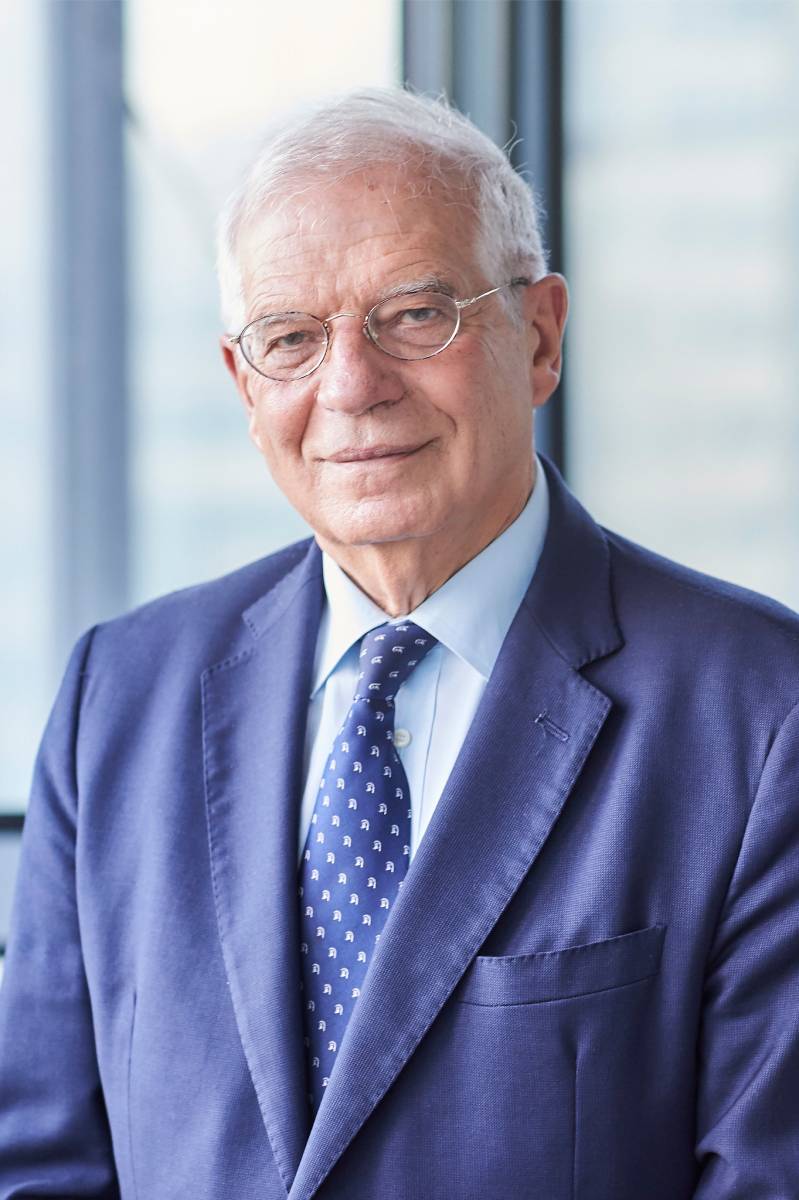Additionally, trade between EU countries and the breakaway regions is banned…reports Asian Lite News
The European Union has agreed to sanction the 351 members of the State Duma who voted in favour of Russia’s recognition of the self-proclaimed people’s republics of Donetsk and Luhansk, in eastern Ukraine.
The bloc will also punish 27 individuals and entities accused of destabilising Ukraine, waging disinformation campaigns and providing financial support to the two separatist regions.
The targets will come from the political, military, business and media sectors, and will be subject to asset freezes and travel bans, which means they will not be allowed to enter or transit through EU territory.
“This is a clear escalation of Russian aggression against Ukraine,” said Josep Borell, the EU’s top diplomat, in a press conference in Paris.
“We demonstrate our determination to respond robustly to latest developments.”
The new package of sanctions also limits the Russian government’s access to the EU’s capital and financial services markets and blocks the refinancing of Russian sovereign debt. Banks that “finance the Russian military apparatus” will also be penalised.
Additionally, trade between EU countries and the breakaway regions is banned.
By going after commercial links, the bloc wants to prevent Moscow from raising additional funds that could be used to bankroll the military campaign that has begun in eastern Ukraine.
“We will make it as difficult as possible for the Kremlin to pursue its aggressive policies,” said European Commission President Ursula von der Leyen in a separate statement.
The EU is Russia’s biggest trade partner, accounting for 37.3% of the country’s total trade in goods in 2020, according to the European Commission. The bloc gets over 40% of its gas and 26% of its oil from Russia, a dependency that officials have rushed in recent weeks to palliate through the purchase of liquified natural gas (LNG) from countries like Norway, Qatar and Azerbaijan.
Both von der Leyen and Borrell praised Germany’s decision to stop the certification process of Nord Stream 2, the controversial gas pipeline that would bring extra Russian gas to Europe.
“I think the German government is absolutely right. Nord Stream 2 has to be assessed in light of the security of energy supply for the whole of Europe,” said von der Leyen.
The new sanctions were adopted unanimously by all 27 member states at the end of an extraordinary meeting of foreign affairs ministers in Paris. The final details will be finalised in the coming days and the specific targets will be made public.
Borrell admitted the bloc “could’ve gone further” but compromises had to be made to accommodate the positions of all countries. He noted the bloc was ready to impose further penalties if the situation at the border deteriorates and turns more violent.
“We didn’t want to show off all our cards from the beginning,” he said, calling Tuesday’s package a “first step.”
He confirmed that Putin is not on the sanctions list.
The Duma voted in favour of recognition on 15 February, arguing the Western-aligned government in Kyiv posed a threat to the pro-Russian majority in the Donbas region.
The Donetsk People’s Republic (DPR) and the Luhansk People’s Republic (LPR) were established in the spring of 2014 following the Maidan Revolution and the ousting of President Viktor Yanukovych, a dramatic episode that took place exactly eight years ago.
President Vladimir Putin “really had this date clearly in mind,” said Borrell.
The Ukrainian government considers the DPR and LPR as terrorist organisations and sees the provinces as occupied territories, like the Crimea peninsula.
The bloc’s response comes after the US and the UK announced similar moves to cripple the economy of the DPR and LPR in a bid to add pressure on the Kremlin.
“We’re afraid, we believe this story has not finished,” said Borrell.
“The risk of conflict is real and we need to prevent it at all costs.”
The EU had previously imposed sanctions on 193 persons, such as judges, prosecutors and Duma legislators, and 48 entities accused of undermining Ukraine’s territorial integrity in Crimea and Sevastopol.
ALSO READ-EU, Central Asian nations call for inclusive govt in Afghanistan

Leave a Reply